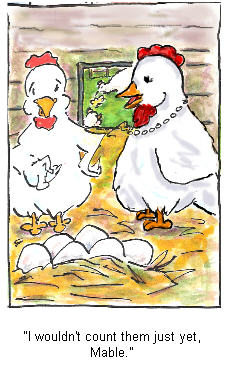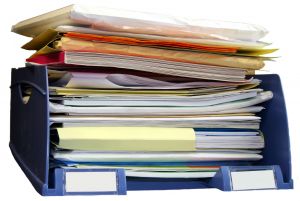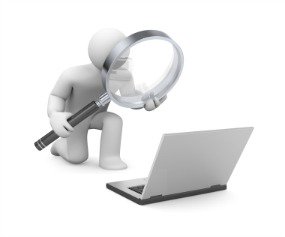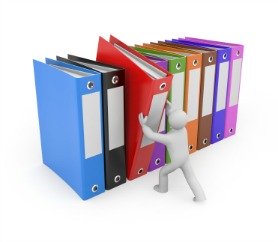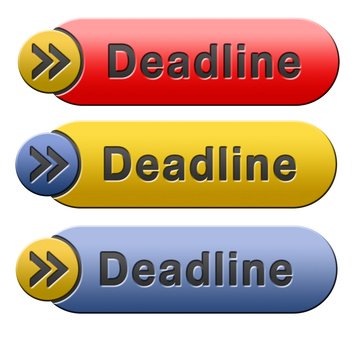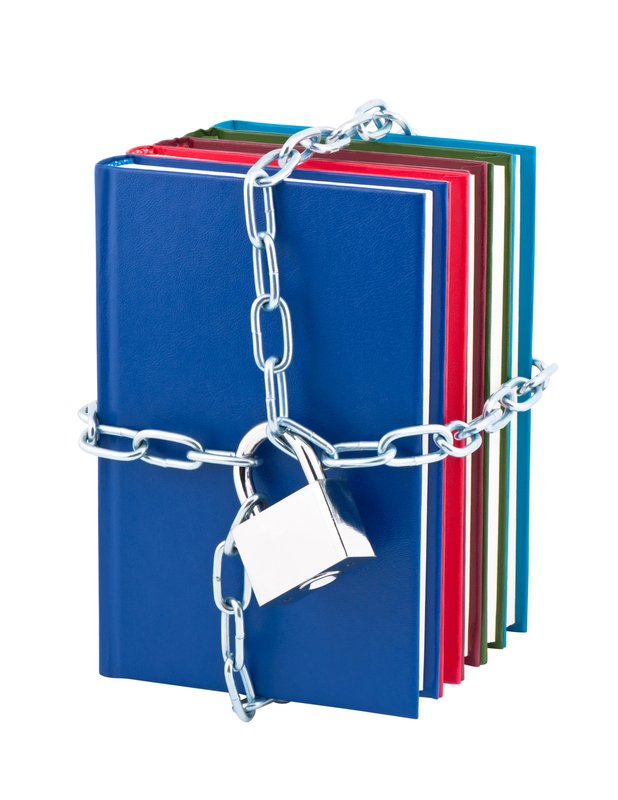- Home
- Financial Planning - Your Road Map
- Small Business Information
Mining Small Business Information
Do Your Reports Meet YOUR Needs? Learn 4 Secrets.

by L. Kenway BComm CPB Retired
This is the year you get all your ducks in a row!
Published in 2009 | Edited May 30, 2024
WHAT'S IN THIS ARTICLE
4 Reporting Secrets | Balance Sheet Quick Quiz | Management vs Financial Accounting | Understanding the Numbers

Let's continue our chat. Today we'll look at mining your small business information database to meet YOUR needs.
One of the advantages of using an accounting software package is to make use of all that data you have painstakingly compiled. Creating customized reports utilizes an essential planning tool.
How are You Doing? Confused?
Oh, by the way. I am going to jump around a bit. You might find it confusing. If we just casually chat about stuff ... a question here, an idea there ... your mind will subconsciously work on all the information without all the stress.
This isn't school and there are no tests.
If you begin to feel tense or stressed because you are not getting it ... stop ... take a deep breath, exhale to the count of four. Sip your tea and ... keep on reading.
Remember, no pressure. You and I are just having a chat. You can do this.
Four Small Business Information Secrets
|
The first thing you need to do is ... Take a moment and think about what kind of information you would like to have. Or to put it another way ... When you are making a decision, what information do you wish you had at your finger tips? Here’s some ideas. |
It's best to under estimate when planning ahead. Cartoon courtesy of Advice ... with Dr. Julia Chicken who says, "Let's face it. You don't know what you're doing." |
Your reports should assist you in managing your profit and loss by ...
... helping price your product - so YOU make a profit not just break-even or worse, lose money. (Did you remember to factor in your liability insurance, loan payments, or owner's draw when you set your price?)
... showing where your greatest profits or biggest losses are occurring in your business. (Maybe it’s time to plug the losses unless it’s part of your long term strategic plan.)
... letting you watch your trends so you can plan ahead to have a sale during a slow period. (If you’re attentive, you can head off problems before they affect your bottom line.)
The secret is to have your accounting system set up to track income and expense by client/customer, by job, by region, by property ... however you need to see it to make your decisions.
My favorite small business bookkeeping program, QuickBooks®, does it seamlessly and without extra effort IF you have it set up properly. Have the system track the information the way you need to use it to make decisions.
Use your accounting system as an essential planning tool to meet your small business information needs.
Your reports should help you manage your cash flow by showing you ...
... who owes you money and when it is due. (Are you reviewing your aged accounts receivable report regularly?) Note: Aged means it breaks down amounts due into 30, 60, 90 day segments.
... who you owe money to and when it is due. (Are you using your aged accounts payable report to pay amounts only on the due date and not before?)
... how efficiently your business is run. (Use your balance sheet to calculate your working capital. This calculation tells you how well you are managing your cash, your inventories, accounts receivables and payable.)
I have two chats if you are interested in learning more about cash flow management and ratio analysis. The secret to getting this information is your accounting system has to be set up using the accrual basis not cash basis. QuickBooks® software (which is what I use) has reminders to notify you about due dates so you can make efficient use of your time.
Financial reporting is an essential planning tool when used to meet your small business information needs.

Your standard financial reports already tell you ...
... what your business owns. (The assets section of your balance sheet will let you see where the business invested your personal contributions and/or what your financing purchased.)
... who owns your business:
(a) creditors like the bank (You can locate this information in the liability section of your balance sheet.);
(b) capital contributors (Check the equity section of your balance sheet to see how much you have invested of your own personal funds into the business.); or
(c) the business (Find the retained earnings line near the bottom of your balance sheet.). ... how that profit or loss from last week, last month, or last year affected the value of your business. (Positive retained earnings in the equity section of the balance sheet means your business is building value by retaining the profits it has made in the business since inception.)
... if you will be able to meet your financial commitments. (Have you taken on too much debt? Bankers watch to see if you have enough cash and its equivalent in the coming year.)
... the sources of your funds and how you used those funds to build your business.
The secret is learning how to read your balance sheet. Learn a few calculations (that's going to be our next chat) you can make to spot early warning signs indicating you may have a problem.
Your balance sheet is an essential planning tool if used to meet your small business information needs.
Your reports should make it a breeze to ...
... compile tax returns - sales, payroll, income (and paying them becomes efficient and almost effortless).
The secret is in having a chart of accounts designed to make tax reporting information easily accessible. QuickBooks® software (my personal favorite) captures your sales and payroll tax information in easy to read reports and lets you associate accounts with a specific line in your tax return.
Your chart of accounts is an essential planning tool when designed to meet your small business information needs.
The Balance Sheet Is A Very Useful Report For Meeting Your Small Business Information Needs
QUICK QUIZ - Balance Sheet
- Yes or No - The balance sheet shows how much cash is on hand.
- Yes or No - You can find out how much you have invested in your business by looking at Owner’s Equity on your balance sheet.
- Yes or No - The balance sheet will tell you how much debt load the business is carrying.
If you answered yes to all three questions, well then ...
... see how much you know already! Don’t worry if you don’t know yet. Stick with me and you will.
Things start to get more interesting and maybe even a bit exciting
Once you start to get a feel how your accounting system can help you run your business, bookkeeping will become more interesting and maybe -- even a bit exciting. I know, I know, who do I think I’m kidding!
Set up correctly to meet your small business information needs, YOU will begin to get a peek inside the workings of your business. Your confidence that you are making sound business decisions will increase.
Just remember, even if you are delegating your bookkeeping, you still need to oversee the process to protect your business.
This means there are a few things you are going to want to handle yourself. (Don’t worry right now. I’ll discuss the checks and balances you need to put in place later.)
The added benefit of understanding the bookkeeping process ... you’ll be able to judge whether your bookkeeper is doing a good job for you or not. Well kept books is an extremely important tool in your business. Don’t under estimate its importance.
The Bookkeeper's Tip
Practice Makes Perfect
One of the essential skills you need as a small business owner is to be at ease with the numbers side of your business. But ...
... are you terrible with numbers? That was me back before computers and when calculators weren’t allowed in exam rooms. But it didn’t deter me. I’ve always been drawn to learn things I don’t understand. (That's why I am learning to build my own website through SBI! right now.) And I wanted to conquer my fear of numbers. (For some reason, I always knew how to instinctively manage my money even if I couldn’t formally do the math!)
So what did I do when I got out of high school? I enrolled in a college to upgrade my grade twelve math and take university transfer courses.
I finally had a goal. (I was one of those people that did not grow up knowing what they wanted to be when they grew up! Heck I’m still trying to figure that out.) And guess what? I studied hard and scored 89% in my math course!
WOW. I even surprised myself.
The next year, I entered the Faculty of Management - now it's called Haskayne School of Business. Slowly over the years I conquered my fear of numbers. Now I no longer have to say “I don’t do numbers, really.” ...
So stick with it even if you don’t understand yet ...
you can conquer your fear of numbers ...
if you don’t give up. ;-)
One final point I want to make before I move on.
If the only reason you put your books in order is to pay all the various types of government taxes, then you are treating the task of bookkeeping like an end product whose sole purpose is to file your sales, payroll and income tax returns.
When you take this view, you are not using your accounting system to meet your small business information needs.
Bookkeeping is being relegated as a mindless task of data entry. If you see the task as a bit beneath you, you will probably put little importance on ensuring the numbers are accurately categorized and recorded.
You know the old saying - Garbage in. Garbage out! This means poorly or incorrectly entered data make ... your financial reports unreliable as a means to assist you in the management of your business. It also puts you at risk should you ever have a tax audit. (I'll explain how Revenue Canada or the IRS decides who to audit later.)
Practice Management Accounting not Financial Accounting
As a small business owner, you want to practice what is called Management Accounting. Its aim is to aid in managing the performance of a business - your business, by creatively (this does not mean dishonestly or illegally!) compiling financial reports to meet your small business information needs.
This is different than Financial Accounting which involves preparing and publishing historical accounting reports for people outside the company (third parties). The reports adhere to national and international standards known as Generally Accepted Accounting Principles (GAAP).
Management Accounting uses your accounting system information to assist you (and your managers - think big!) in making informed business decisions.
The information is generally used internally only and is future oriented (not historically focused) to plan, make business decisions, create and monitor internal controls, evaluate appropriate use of company resources and safeguard assets.
It supports the preparation of published financial reports for third party stake holders like creditors, shareholders, regulatory and tax agencies.
Because the management reports generated are intended for internal use only, they may not meet GAAP standards. Many small businesses produce internal financial statements that are prepared to meet income tax filing requirements because they don't have outside investors.
While bankers are a third party stakeholder, they will often accept internally prepared financial statements if they are clearly marked as "unaudited" and were used as the basis to file your tax return.
Dare I say it again. A set of well kept books is an extremely essential tool in your business. Don’t under estimate its importance.
One of your goals should be to get your small business information needs met through accurate bookkeeping records. Be confident in your decision making.
Understanding the relationships makes it fun!
Fun? Yes, now you will know stuff about your business without talking to your bookkeeper or accountant.
I hope you have started designing reports in your mind. Ask your bookkeeper to prepare them. Begin today (okay tomorrow) to let your accounting system assist you in meeting your small business information needs.
How did you determine the price for your service or product? Did you factor in your overhead or just include direct costs? Have you checked your financial records to verify reality compares to your original assumptions? You don’t want to wait until you have your tax return prepared to figure out whether you made good pricing choices.
Have you ever thought you were on your way to earning a profit only to have extra charges (darn those post-dated cheques! ) spin you right into a loss? If you are paying attention to the numbers, you can catch things early - before they become a problem.
Or did you have pretty good sales this month but your cash flow is in the red? Check to see if you forgot to book some income. Also check to see if you have outstanding accounts receivable that are past their due dates. Or is it possible your profit margin is out of whack because you spent more on materials this month than you planned for?
Watching your bank statement is not managing your cash flow. :-( On a regular basis, which may be daily once your business becomes large enough, do up a quick spread sheet to keep on top of your cash flow. (I’ll link you to one shortly.)
By getting your hands on some business documents that are called financial statements, you will see your small business information results.
Releasing the mystery held within these reports will give you a sense of mastery over your financial destiny.
With your bookkeeper's help, your customized management reporting package should meet all your small business information needs.
The fun starts when you begin to understand the relationships between the numbers and how they affect your business. Once this happens, the mind numbing dullness (did I actually say that!) or frustration (what - you didn’t jot down the category on the slip when you bought it!) gets replaced with a bit of anticipation and interest.
I've found that while many small business owners don't like to deal with the numbers, they have an astuteness about the numbers ... because it's their business that they are intimately conversant about and intuitively carry the numbers in their head. So don't let your fear of numbers stop you from learning what your financial statements are telling you. You know more than you think you know! Getting your accounting system to meet your small business information needs means more money in your pocket ... in the long term. It is worth the effort!
Wrap-Up
I started off asking ... if your reports met your needs and mined your small business business information database.
Am I at least starting to convince you that your bookkeeping records can be a powerful tool to assisting you in running your business? Your records can provide you with small business information that has the power to improve your business management skills.
When you began your business, did you ever think you would have to learn bookkeeping? So here’s the thing, even if you don’t do your own books, YOU as the owner still need to oversee your business finances.
Your books hold a wealth of information if they have been prepared accurately and on a timely basis. If you take the time to understand how they are prepared and how the numbers tell a tale about your business, your business management skill will improve as your small business information needs are met.
Shortly, I’ll talk about criteria you can use to judge whether your current accounting system is right for YOU and your business. Now as promised we'll visit balance sheet essentials ...

Get hydrated by filling up your water glass. Exhale and I’ll see you on the next page.

It's been great chatting with you.
Your Tutor
So What are Good Bookkeeping Practices?
Getting your ducks in a row means tackling nine key areas. Don't worry. We'll take them one at a time:
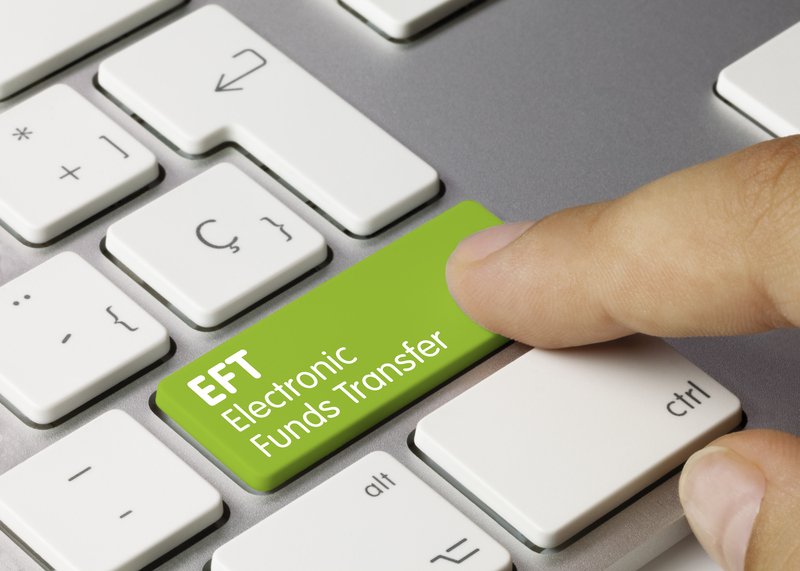 8. File compliance reports and remit the amounts owing on time.
8. File compliance reports and remit the amounts owing on time.Home › Financial Planning is YOUR Road Map › Small Business Information Should Be Mined
